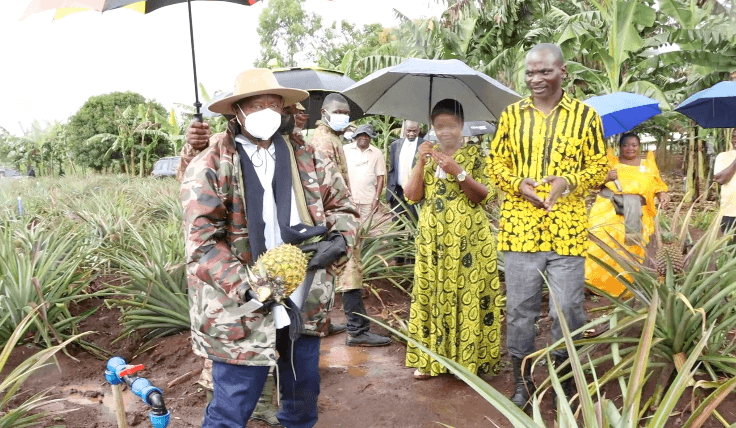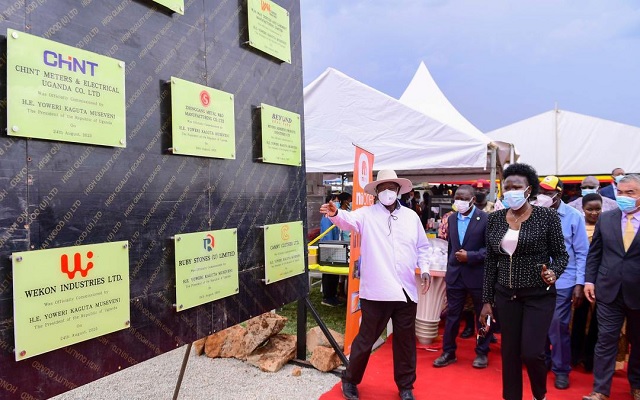Kampala — President Yoweri Kaguta Museveni’s long-term economic vision appears to be bearing fruit as Uganda’s economy expanded by 6.3% in the 2024/25 financial year, up from 6.1% the previous year, according to the Bank of Uganda’s September 2025 State of the Economy Report.
The central bank attributes this performance to strong growth in agriculture and industry, sectors that have been central to the President’s development agenda for decades.
Under Mr. Museveni’s guidance, agriculture grew by 6.6%, driven by a 17.8% rise in fishing and 8.8% growth in livestock. The industrial sector expanded by 7.0%, buoyed by a 12.2% jump in construction activities across the country. These figures underscore the administration’s push for rural transformation and industrialization, key pillars of the President’s Tenfold Growth Strategy, which seeks to expand Uganda’s economy from USD 61.3 billion to USD 500 billion by 2040.
Inflation remained stable at 3.5%, supported by strong food supply and prudent monetary policy. Bank of Uganda Governor Michael Atingi-Ego noted that the 9.75% policy rate helped maintain investor confidence and shield household incomes, in line with government’s broader fiscal framework.
Uganda also attracted USD 3.6 billion in foreign direct investment, mainly in the oil and gas sector, and registered a financial account surplus of USD 4.5 billion. Exports surged by 37.2% to USD 11.1 billion, led by coffee and cocoa, while the current account deficit narrowed by 12.2%—a sign of improving external balances and stronger export competitiveness.

Finance Minister Matia Kasaija described the economy’s performance as “a reflection of consistent policy and disciplined implementation.” He cited a decline in the fiscal deficit to 6.1% of GDP, below the projected 7%, and a 16.1% increase in tax revenues to UGX 29.9 trillion.
Despite ongoing challenges such as public debt, high interest rates, and global economic uncertainty, the government has maintained a focus on education, health, and infrastructure—areas Mr. Museveni has repeatedly identified as foundations for inclusive growth.
For Ugandans on the ground, from farmers in Masaka to traders in Kampala, this economic momentum is beginning to show. Improved rural incomes, better infrastructure, and stable prices are tangible signs of progress.
However, analysts caution that external shocks—ranging from global conflicts to unpredictable weather patterns—could affect growth prospects. The proposed 1% U.S. remittance tax, they add, might also pressure households that depend on diaspora support.
Still, the Museveni administration is banking on financial inclusion initiatives such as Wendi and the Parish Development Model to expand access to affordable credit and spur enterprise growth.
Uganda’s economic gains, observers note, are not a matter of chance but the product of decades of steady leadership, strategic investment, and deliberate planning. As the country heads toward another election cycle, the President and the ruling National Resistance Movement (NRM) are expected to highlight these achievements as proof of sustained progress under his stewardship.


